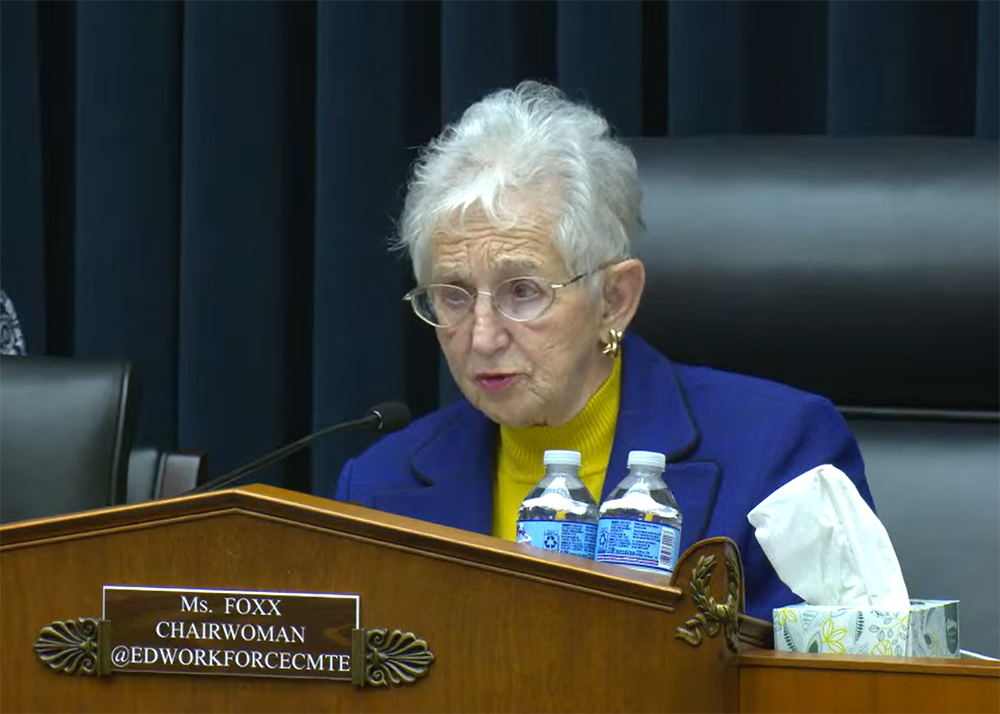The challenge of preventing pharmacy benefit managers (PBMs) from driving up drug prices was front and center on Capitol Hill this week.
Bipartisan legislation to enforce transparency of PBM activities moved forward in the House Education and Workforce Committee on July 12, and on the same day, the Senate Finance Committee was announcing plans to mark up its own PBM legislation. On July 13, Federal Trade Commission (FTC) Chair Lina Khan was questioned about pharmacy benefit managers during testimony before the House Committee on the Judiciary’s Oversight hearing.
PBMs manage prescription drug benefits for insurance plans and payers—and the three largest PBMs handle nearly 80% of all prescriptions in the U.S. In exchange for recommending coverage of drugs, PBMs receive rebates from drug makers. PBMs should be passing on rebates to patients, but research shows they often profit while making drugs costlier. Congress has shown a growing appetite this year for addressing drug prices by reining in pharmacy benefit managers.
Moving legislation forward
During their July 12 markup session of several bills, the Education and Workforce Committee voted to advance two bills specifically regulating PBMs to the full House, with a single “no” vote for each:
- The Transparency in Coverage Act would make PBMs disclose rebates from drug makers.
- The Hidden Fee Disclosure Act would make PBMs disclose all fees they charge drug makers.
Committee Chair Virginia Foxx (R-NC) outlined the need for legislation.
“PBM compensation is a blind spot for the American public,” Foxx said in her opening statement. “We know they leverage their market power to extract rebates from drug makers. We know they leverage their relationships with health insurers to decide which drugs should be covered. So, we have a right to know if they do so in an unfair way to the consumer.”
Several other senators spoke in favor of the bill, including Ranking Member Bobby Scott (D-VA) and Rep. Joe Courtney (D-CT).
The lone voice of opposition was Rep. Wayne Burlison (R-MO), who said the Hidden Fee Disclosure Act “will only benefit big pharma” by letting them make “even more profits than they do today.”
In the Senate, a draft of the “Medicare PBM Accountability Act,” which would require pharmacy benefit managers to inform Medicare plans about “behind-the-scenes practices that drive up prices and costs,” was announced July 12 by members of the Senate Finance Committee. The bill, backed by Sens. Catherine Cortez Masto (D-NV), Thom Tillis (R-NC), Ron Wyden (D-OR), and Mike Crapo (R-ID), was tentatively scheduled for a July 26 markup.
FTC Chair reports on PBM probes
During House Judiciary Committee questioning of FTC Chair Khan on Feb. 13, Rep. Hank Johnson (D-GA) noted “three PBMs controlling 79% of the market” lead to higher drug costs. Rep. Deborah Ross (D-NC) said PBM market power means “patients don’t see a lot of the PBM discounts at the pharmacy counter.”
Khan said the FTC is deepening its inquiry into pharmacy benefit managers, which began last year.
“Conflicts of interest” apparently arise when insurers own PBMs, and PBMs compete with the pharmacies they serve, Khan said. “We’ve also heard that these PBMs demand rebates in ways that may be denying patients access to more affordable drugs.”
While she could not give a timeline for FTC to release its report, Khan promised it would be thorough.
“This comprehensive study will shine a light on the opaque operations of these large pharmacy middlemen who can dictate the pricing and access to life-saving drugs for so many Americans,” she said.




